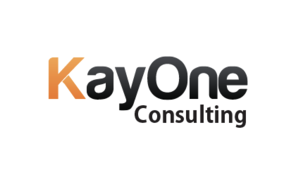12 Reasons to Hire A Virtual CFO
The C-suite proves as a forerunner for the future and a critical arbitrator of difficult decisions in times of uncertainty. Given these uncertain times, a CFO is best positioned to provide the most relevant and updated metrics. Such key financial metrics can help businesses get a clear picture amid chaos.
Many businesses the world over are operating in an uncertain environment. All thanks to the huge scale of financial disruption that has surfaced as a result of the pandemic.
To overcome such uncertainties, many organizations across the world are shifting to the new normal and are adopting more flexible models. One of such models is hiring a Virtual Chief Financial Officer (CFO).
Who is a Virtual CFO?
A Virtual Chief Financial Officer is an outsourced service provider who provides professional expertise to fulfill the financial requirements of an organization. VCFO can be a single person or an entity that functions just like the Chief Financial Officer of large organizations.
These are experienced financial professionals who are extremely beneficial, especially for start-ups, small and medium enterprises. This is because such firms are able to keep their fixed costs low. Plus, they get the flexibility of choosing high-skill assistance for their financial department as and when they need it.
Even the larger corporates, having full-time CFOs working with them, may hire virtual CFOs. They can take virtual CFO services for their subsidiary/joint Ventures and virtual CFO support services for their existing CFO offices.
Virtual CFOs overlook the financial data and a host of other financial management tasks. These may include business budgeting, cash management, statutory compliance, and tax filing. In addition to this, VCFOs may also develop comprehensive and customized strategies to suit the business’s current needs.
Also, they provide valuable insights to steer the drive the business towards sustainability. Small and medium-sized entities (SMEs) and start-ups hesitate in hiring senior finance officers. This is because they come at a huge price. As a result, such businesses are unable to optimize certain grey areas.
For instance, businesses running without CFO support are unable to maximize profits, optimize processes, and constantly undervalue the worth of their company.
But if such businesses hire virtual CFOs, they can optimize their processes and meet short-term and long-term goals at a much moderate price.
Let’s understand how a business can benefit from a Virtual CFO.
Why Should Your Hire a Virtual CFO
CFOs can be in-house employees or outsourced from a third party. An outsourced CFO is a financial expert who works part-time or on a contract basis. Such an individual or entity helps organizations with their financial tasks and strategy.
These individuals are highly trained and can be especially beneficial for SMEs that do not necessarily need or cannot afford a full-time CFO.
A CFO is responsible for the financial health and strategic planning of an organization. In addition to this, such an individual is responsible for managing budgets, tracking expenses, preparing financial reports, and advising on strategic decisions that impact growth and the bottom line. Thus, here are the top 12 reasons to hire a virtual CFO.
[monsterinsights_popular_posts_inline]
1. Cost Efficiency
The most obvious benefit of hiring a virtual CFO is affordability. That’s because a VCFO is not a full-time employee of a company. Hence, the company is not liable to him a full salary along with other employment benefits.
Hiring a full-time CFO is extremely expensive, especially for startups and small and medium enterprises. Note that CFOs are certified public accountants with a master’s degree in businesses administration and have immense experience (minimum 10 years) in business management. This means they have a background in accounting, finance, and extensive business management experience. Thus, full-time CFOs do not come at a low cost.
However, a virtual CFO is not paid like a full-time employee. A VCFO receives payment for the amount and type of work that he undertakes for his clients. Thus, a company intending to hire a virtual CFO may free up cash for growth or investment, which otherwise would have remained tied up.
2. Flexibility
In addition to providing monetary benefit to a business, virtual CFOs are highly flexible in their approach. Startups or SMEs can engage a VCFO whenever they need them.
For instance, businesses can hire them for a restricted period of time, say a few hours a week, to stay updated on what’s going on in their industry.
Or a business can take advantage of a CFO’s knowledge during short-term periods of a changing business climate. For example, a virtual CFO provides assistance when taking on special projects, for mergers and acquisitions, during policy development, and when working to obtain financing or investments.
In addition to this, a business can even collaborate with a virtual CFO and take benefit of his financial expertise. Such an initiative will help the business owner in strategically navigating the current business objective. Then, he can resume handling the business’s financial responsibilities once the specific goal has been met.
This means organizations quickly gain access to solid systems platforms and process models by hiring virtual CFOs. They get the ability to gain more comprehensive, standardized, actionable management information for running their business.
[monsterinsights_popular_posts_inline]
3. Improved Financial Decision-Making
Businesses that plan to run without a CFO are vulnerable to risks like missed business opportunities, lack of adequate control, exposure to legal or tax risks. They may even face challenges like wastage of time on unproductive tasks and faulty transition to new processes.
Note that CFOs help businesses make better financial decisions. Such decisions may lead to increased profits, better cash flow, and reduced risk for the businesses. Also, during crises or uncertain times, a CFO can provide the strategic guidance that a business needs to navigate any challenges.
Outsourced CFOs have typically worked with many different businesses across various industries and challenges. It’s this experience that helps them better solve your unique challenges.
But the biggest challenge for start-ups and small and medium enterprises is to minimize their fixed costs. And hiring a full-time experienced CFO is quite expensive.
A virtual CFO may help businesses run with budgets. This means the virtual CFO services offer more value for money than hiring a full-time CFO.
Businesses can benefit from a virtual CFO’s objective and unbiased opinions. They can benefit from the fresh perspective of a virtual CFO, especially when companies face new challenges. That’s because a virtual CFO can help a business discover new approaches to problem-solving and strategic planning which the current team may have overlooked.
Furthermore, a virtual CFO can help a business develop financial strategy by looking at the business as a whole. He can help businesses make important decisions by analyzing the financial statements and the key performance indicators of a business. In addition to this, a virtual CFO can give top-level executives a complete and clear understanding of the company’s current financial standing. Plus, he may also project a reasonable image of the business’s future financial climate.
4. Support and Stability
Many startups and SMBs keep a bookkeeper, accountant, or both on staff. However, such businesses do not have the expertise to carry out financial tasks. Hiring a virtual CFO can resolve this challenge.
As mentioned earlier, a virtual CFO may be an individual or an accounting agency. An individual virtual CFO can train the accounting staff of a business to carry out basic operational accounting functions. These functions may include monitoring accounts payable and receivable, billing, payroll, and generating financial reports like profit and loss statements, balance sheets, and cash flow statements.
Additionally, a virtual CFO may help a business organization transition to a full-time CFO when it attains a size or transactional complexity requiring a full-time CFO. He may assist such a business with the selection of candidates for the full-time CFO position. Also, a virtual CFO may help the business with the complete process of onboarding the company’s new CFO.
In case a consulting firm offers virtual CFO services, a business obtains the support and resources of an entire accounting firm. The bookkeeping staff of a business can consult with CFO within the accounting firm. In fact, a business can procure any additional resources needed to carry out financial tasks from the accounting agency.
Also, the accounting firm can step in with additional resources to ensure continuity in the CFO role in case there is turnover in the CFO position.
[monsterinsights_popular_posts_inline]
5. Task Delegation
By hiring a virtual CFO, business owners not only get the expertise of an accounting professional, but they are able to focus on their core operations.
Virtual CFOs take on the accounting and financial tasks necessary to keep the business running smoothly. They implement best practices for all financial processes. Furthermore, virtual CFOs also optimize the level of resources needed to carry out the financial processes.
Hence, the financial expertise of virtual CFOs enables business owners and managers to focus on their areas of expertise. They free up the time business owners would otherwise find themselves spending on unnecessary bookkeeping and accounting tasks.
6. Performance Management
Many businesses still do not have access to the information they need to make good strategic decisions. This is despite the fact that they have massively invested in business and financial management solutions like CRM and ERP respectively.
The challenge with such businesses is not having access to a lack of information, instead, it is a lack of insight. Note that virtual CFOs help businesses resolve this gap using Integrated Performance Management (IPM).
IPM is a structured management approach to convert the strategic objectives of a business into operational results. This is typically done by focusing on value creation.
Virtual CFOs implement the IPM approach for creating value for a business. They achieve this by combining the power of people, information, technology, and processes throughout the management cycle.
Further, virtual CFOs determine and evaluate the key financial indicators that align with the IPM strategy for a business. They ensure that both the KPIs and the IPM approach s customized as per the complexity and the size of the business.
Thus as a part of the IPM approach, virtual CFOs provide a strategy to business owners that flows through to measurable actions. Additionally, they focus on value-adding initiatives, implementing tight reporting processes, improving information quality, and identifying improvement opportunities.
[monsterinsights_popular_posts_inline]
7. Working Capital Optimization
Many businesses still lock up significant amounts of cash in their day-to-day operations. Though, they can manage their working capital more effectively and increase profitability.
Optimizing working capital is one of the ways in which a business can increase cash levels in a relatively short period of time. To optimize working capital, a business must review cycles of accounts receivable, accounts payable, and inventory. Such an analysis will help the business in determining potential cash flow improvement and forecasting cash flow.
In addition to this, a business can also evaluate certain key performance indicators. Analyzing these indicators can help the business in determining its working capital needs.
8. Accurate Financial Reporting
It is important for a business to ensure that it undertakes accurate financial reporting. Accurate financial reporting is important from the point of view of meeting statutory and regulatory compliance.
Error-free financial statements ensure that tax compliance is met within deadlines. Also, accurate financial reporting helps a business to reduce costs connected with the financial close.
Besides all this, accurate financial reporting by CFOs ensures that the business gets specialized support for activities that are separate from the normal activities of the business. Such activities may include mergers, acquisitions, and other special projects.
Thus, accurate financial reporting not only enhances the quality of financial information. But it also enhances management’s decision-making and builds investor confidence.
9. Assessment of Debt
Businesses today are facing a complex environment in terms of raising funds. The changing needs and strategies of a business demand new financial solutions. All this increases complexity for the business owners and hence consumes a lot of time.
A virtual CFO can help a business in analyzing the existing debt arrangements and suggest ways to improve the cost of financing the debt.
Further, he may also help a business in preparing investment documentation to attract funds from new lenders like private equity.
In addition to this, a virtual CFO may also undertake financial modeling, optimize taxation, assess personal guarantees, international financing sources, and assess lender proposals.
[monsterinsights_popular_posts_inline]
10. Optimizing Financial Transactions
For quick and effective decision-making, businesses these days need to have access to high-quality financial data. Thus, a business must optimize its financial transaction process.
Virtual CFOs can help businesses achieve this by improving and integrating transaction processes with technology.
Note that financial transaction processing is just not restricted to capturing financial data or performing accounting transactions. It also includes activities that are important for running the day-to-day operations. For instance accounts payable management, inventory management, general ledger accounting, treasury management, fixed assets management, project accounting, and much more.
Virtual CFOs review information systems and processes of a business and compare them with industry benchmarks. This helps them to find out opportunities for optimization.
Also, they even optimize the financial processes of a business including the closing of books, financial reporting, management of accounts receivable and accounts payable.
Further, they bring in automation that helps businesses to reduce costs related to financing departments.
11. Building Relationships
The very foundation of a business is the relationships it develops with other people. These people may either be investors, lenders, bankers, or other stakeholders.
For instance, investors provide requisite funds to businesses and help them to move to the next stage of growth. Likewise, lenders provide businesses with loans that can help a business in running its day-to-day operations or making capital expenditures.
A virtual CFO can provide the necessary expertise to a business in establishing good relationships. As a result of such expertise, businesses will not have to struggle with banks for raising loans, attracting investors, finding lenders willing to provide funds to the business.
In fact, a virtual CFO can negotiate with bankers and help a business find common ground with them.
Further, a virtual CFO can provide unbiased guidance about whether it’s worth it to continue to try to establish a relationship with a current bank or lender.
[monsterinsights_popular_posts_inline]
12. Improving Business Growth
Every business needs a plan in order to grow. A virtual CFO can help a business in preparing a plan and choosing the most appropriate path for growth.
In case a business is planning to acquire a firm, a virtual CFO can help such a business in answering important questions before the acquisition. These questions may include “is the company worth purchasing” or “what is the business really acquiring with the purchase”.
Thus, a virtual CFO performs due diligence on the company to be acquired. This helps the business to avoid the wrong acquisition decision and know what it is really buying.
In addition to this, a virtual CFO can help a business to evaluate its current employee mix. Such an evaluation may help the business to analyze whether adding new people would increase efficiency and profits.




